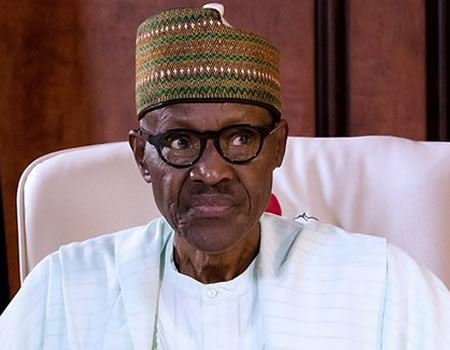The Association Professional Bodies of Nigeria, has attributed the failure of the present administration in the country led by President Muhammadu Buhari to revamp the economy and tackle the challenges confronting the nation to poor research culture and critical infrastructural facilities.
This was the submission of a lead Scholar, Centre of Excellence in Food, Security, Department of Animal Production and Health of the Federal University of Technology, Akure, (FUTA), Prof. Valentine Aletor, during the second annual lecture of APBN, titled: “Research and Innovation Versus Economic Diversification: Wither Nigeria,”
Aletor said that the poor state of the nation’s infrastructure would hinder the goals, lamenting that the “chronic under-funding” of education, research, critical infrastructural development, inadequate legislation and recognition of local researchers, innovations in Nigeria.
Aletor who is the Pioneer Vice Chancellor of Elizade University, Ilara-Mokin, identified adequate and affordable power supply, communication and transportation as the catalysts of diversification and economic prosperity.
He also bemoaned the failure of governments at all levels to give priority to adequate funding of agriculture, education and research, saying Nigeria lacks well-articulated, coordinated and effective approach towards research and diversification.
He said Nigeria remains largely a buying and selling nation, revealing that agriculture has comparative advantage over other sectors of the nation in terms of diversification.
He noted that countries like Ghana, Israel and the Asian Tigers committed over 30 percent of their resources to education and research for rapid growth, bridging the link between industries and research institutes.
He explained that small and medium scale enterprises that employed 80 percent of jobless youths cannot thrive in Nigeria, unless the government can tackle the current epileptic and unaffordable power supply, poor transportation system and interrupted communications sector, which successive administrations had failed to tackle.
The APBN National President, Dr. Omede Idris, said the association is largely committed to promoting professionalism and development issues through interactions, cooperation and commitment.
Idris who was represented by Chief Oye Akinsulire, noted that the 28 professional bodies set objectives for the advancement of the professions and the development of the nation at large.
The Ondo State chairman of APBN, Pastor Gboyega Akerele and his first Vice Chairman, Prince Adeyinka Adedire, had earlier noted that the theme of the lecture was selected in view of the prevailing socio-economic challenges facing the country.
They said there was urgent need to appraise the diversification policy of the present administration, so as to perform advisory roles on how best government would achieve economic prosperity.
Akerele hinged the urgency of the lecture on the prevalent global oil crunch and the abandonment of various policy recommendations from the country’s higher institutions.
“While countries such as United Arab Emirate, Qatar, Malaysia, Japan have successfully transformed themselves into modern economy, Nigeria is on the other hand still trying to develop.
“Its effects are what we experience today, most especially in the area of our infrastructural development,”






